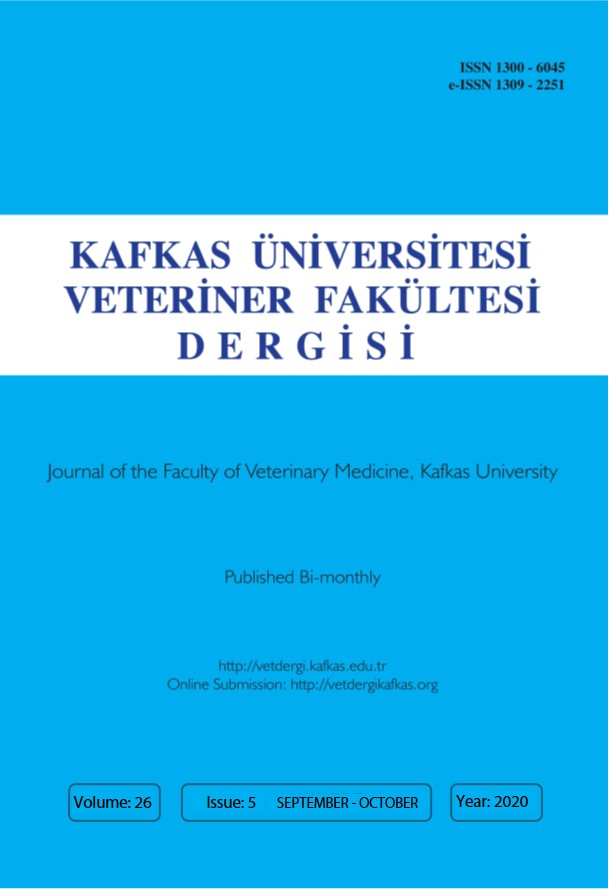
This journal is licensed under a Creative Commons Attribution-NonCommercial 4.0 International License
Kafkas Üniversitesi Veteriner Fakültesi Dergisi
2020 , Vol 26 , Issue 5
Roles of Histidine Kinase Gene yycG in the Pathogenicity of Listeria monocytogenes
1College of Animal Science, Yangtze University, No.88, Jingmi Road, Jingzhou, 434025, CHINA2Key Laboratory of Prevention and Control Agents for Animal Bacteriosis (Ministry of Agriculture), Institute of Animal Husbandry and Veterinary Sciences, Hubei Academy of Agricultural Sciences, No.29, Nanhu Road, Wuhan, 430064, CHINA
3Engineering Research Center of Ecology and Agricultural Use of Wetland, Ministry of Education, Yangtze University, No.88, Jingmi Road, Jingzhou, 434025, CHINA
4State Key Laboratory of Developmental Biology of Freshwater Fish, School of Life Sciences, Hunan Normal University, Changsha 410081, CHINA DOI : 10.9775/kvfd.2020.24179 As an opportunistic foodborne pathogen, Listeria monocytogenes could successfully switch self-characteristics in response to environmental conditions. In L. monocytogenes, sixteen two-component systems (TCSs) have been found to contribute the bacteria to sensing and adapting to various conditions. Our previous genomic study showed that mutation was observed in the histidine kinase gene yycG between Lm850658 and M7 among the sixteen TCSs. The YycFG TCS was found playing important roles in many other Gram-positive bacteria. While the roles of YycFG TCS in L. monocytogenes remain poorly known. In this study, we aimed to determine whether yycG play roles in pathogenicity of L. monocytogenes. We created a histidine kinase gene yycG deletion strain (ΔyycG) based on the wild type strain Lm850658 and a complemental strain (CΔyycG). We found the yycG deletion significantly impaired the growth ability and mobility, but enhanced the hemolysis ability in vitro. In addition, infection assays on cell and mice model showed that ΔyycG exhibited significantly defected in infection ability and virulence. All these phenotypes of the ΔyycG could be reversed largely to the levels of the wild type strain Lm850658 by gene complementation. Cell wall-associated and secreted protein analysis showed that the secreted content of ΔyycG was significantly increased. And western blotting revealed that Internalin protein B (InlB) and Listerolysin O (LLO) was markedly increased in the secreted fractions of ΔyycG, which might be responsible for decreased adhesion and invasion ability and increased hemolytic activity, respectively. Overall, we found the histidine kinase yycG played important roles in pathogenicity of L. monocytogenes for the first time. Further investigation is needed to explore how the YycFG TCS modulates the growth, mobility, cell surface proteins translocation and virulence. Keywords : Listeria monocytogenes, Two-component system, Histidine kinase yycG, Pathogenicity











